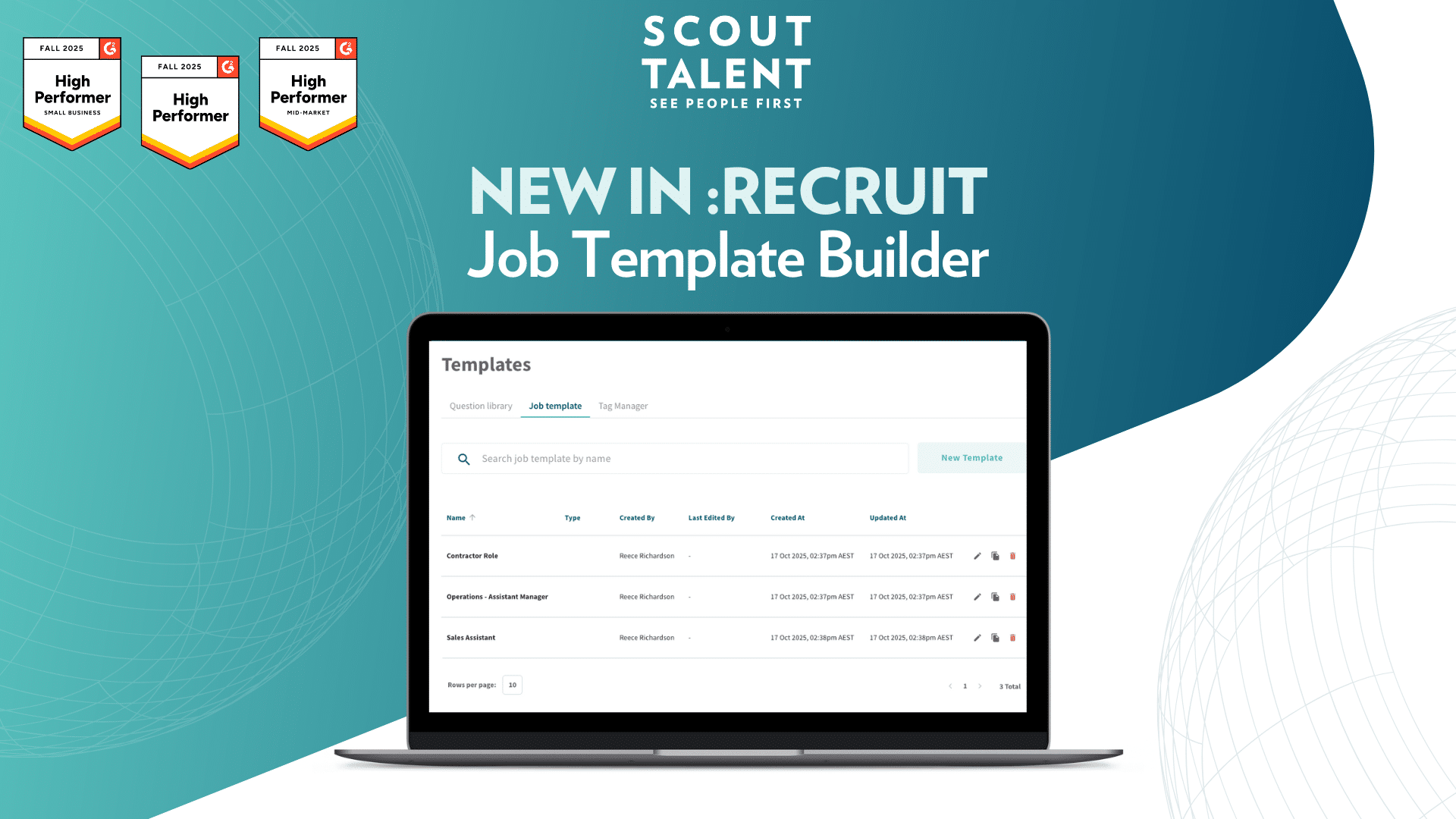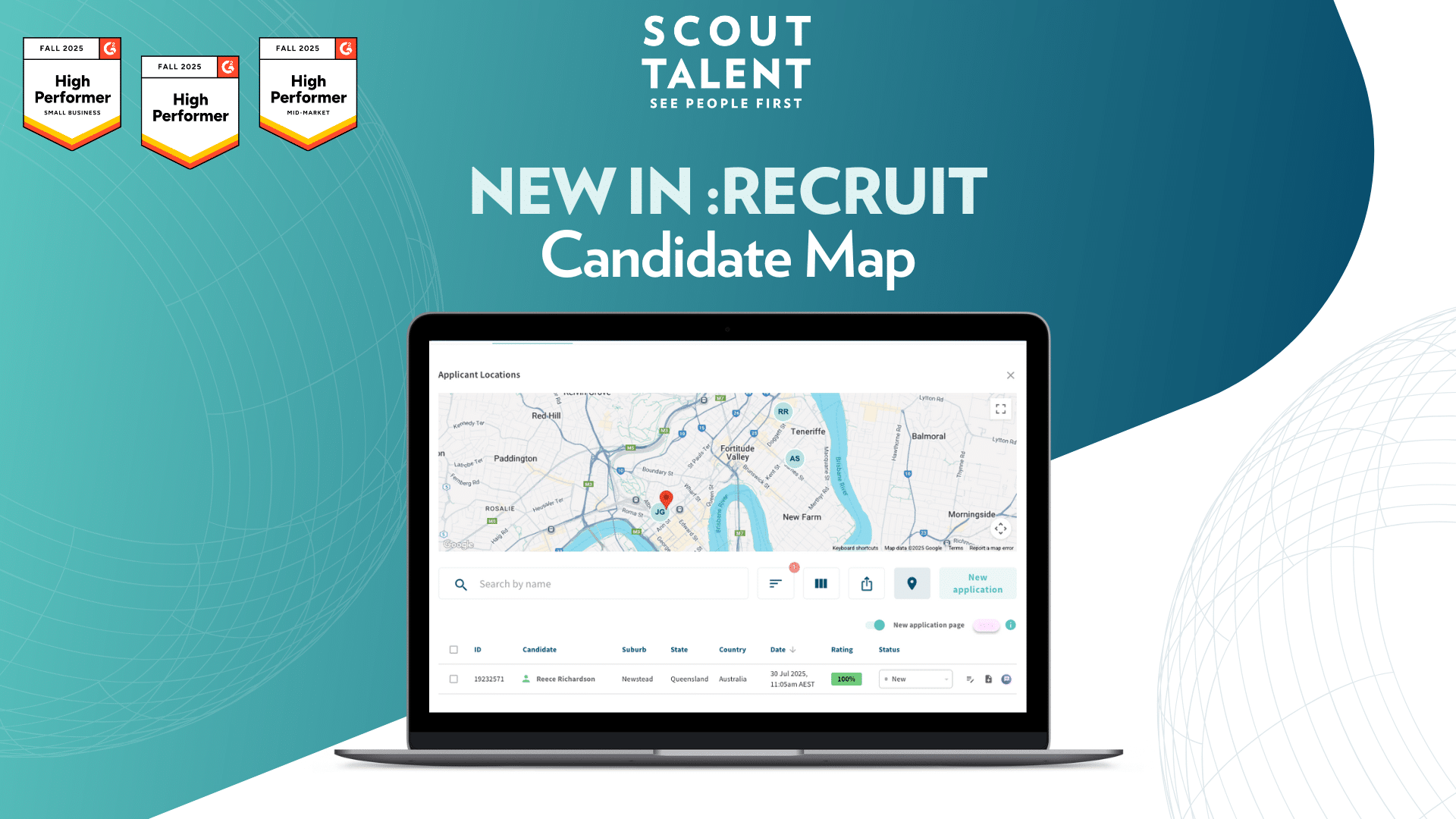Kirk Peterson, Managing Director for Performance Shift, a corporate training and consulting business focused on helping leaders and teams reach their full potential, shares the best interview questions to recruit high-performers.
Many of us want to recruit the best possible candidates – the High Performers. As Steve Jobs said, “go after the cream of the cream. A small team of A-players can run circles around a giant team of B and C players.”
But you need the correct criteria and to ask the right questions to be able to identify high performers, the A-players Steve Jobs refers to.
Having worked within, led and trained many high-performing teams, here’s my outline to attract, select and retain high performers and interview questions to recruit high-performers.
Identifying high-performing people
Below are three key traits that I believe are the identifiers of a high performing person. Assessing these will enable you to readily determine a high performer.
Emotional Intelligence – Motivation and Desire
Emotional intelligence consists of the following:
- Motivation and the desire to improve
- Self-awareness
- Self-regulation
- Empathy
- Social Skills
People with high emotional intelligence will be in full control of their emotions, calm in a crisis, and will make decisions sensitively while reading the emotions of others. Their can-do attitude can bolster morale in other team members.
Grit
Grit can be measured by passion and perseverance. These may be the building blocks but grit is more than the sum of its parts. People with grit are goal-oriented, purpose-driven and will do whatever it takes to achieve.
This is where effort counts as much as talent as someone with grit refuses to quit.
Does a person stick to their long-term goals or are they distracted by new ideas and projects? If a person is too easily distracted, they won’t become a high performer.
Resilience
This consists of:
- Wellbeing- mental and physical
- Recovery
- Ability to Bounce Back
A resilient person will be one who when faced with a setback or negative outcome, will recognize it, learn from it and quickly move on. They will recognize the importance of movement, nutrition and sleep and act accordingly to maintain their physical and mental health.
Using the above as a baseline we can compile a list of interview questions that will enable us to recognize these characteristics in a candidate.
9 Interview questions to recruit high-performers
- What are your motivations and purpose in your job?
- What feedback has been given to you that has surprised you?
- What have you done when you’ve been given poor feedback?
- Give an example of when you have displayed empathy.
- How do you build rapport with your team members?
- What are you passionate about?
- Give an example when you have displayed perseverance?
- When did you bounce back from a negative situation and how long did this take you?
- What physical activity do you do and how much sleep would you get on average, each night?
By asking these nine interview questions to recruit high-performers, you’ll get a great understanding as to whether a candidate has the characteristics that you’re looking for. You can glean some valuable insights about a candidate’s attitude, work ethic, tenacity, and sense of teamwork – all of which are key drivers in high performance.
Ask for multiple examples in your interview, using the questions above. Many candidates can come up with one example to answer your question. High performers will come up with several. This will also eliminate candidates who may have practised or rehearsed their answers.
It’s also important to appreciate that salary is not the sole driver for top performers at work. During your interviews, connect with them to find out what their drivers are. This could include flexible work hours or working on innovative projects.
Show them how your organization can fuel their growth – they want to be challenged and motivated and will have a growth mindset – so this will be important to them. High performers are always in demand, so you need to sell them on your organization in the interview.
Asking about these drivers will also deliver key information for the next stage – retention. Once you have successfully recruited a high performer, the next challenge is to then retain them. High performers will add value to your organization, but it is important to know how to effectively manage them.
For support with any part of your recruitment process, please feel free to reach out to us via email at hello@scouttalent.ca.






